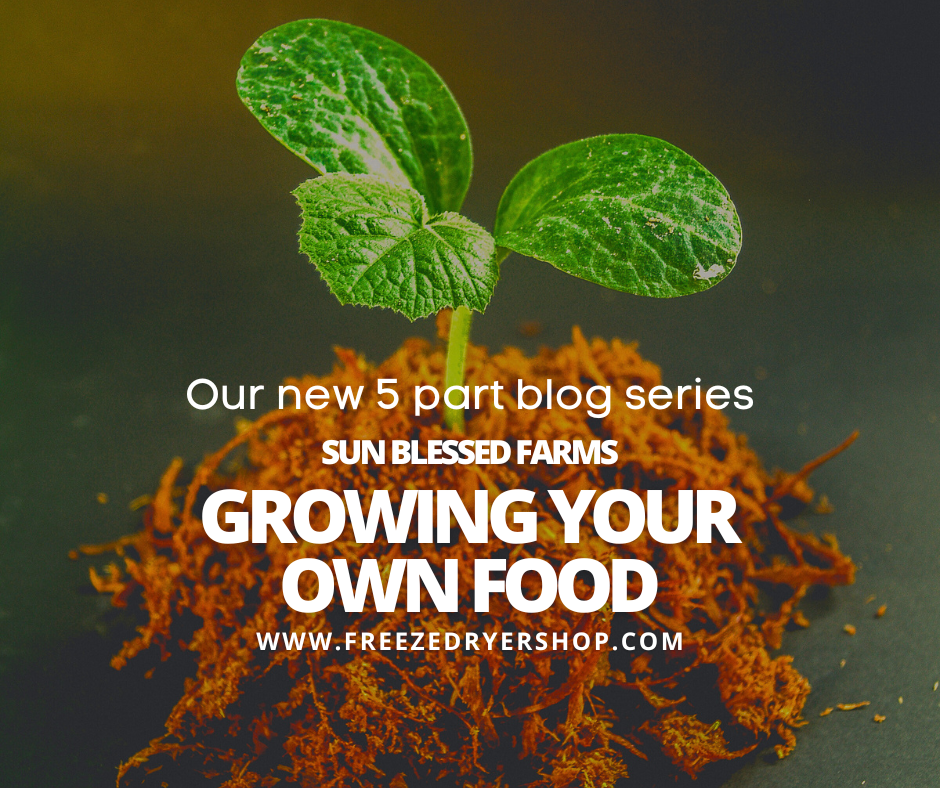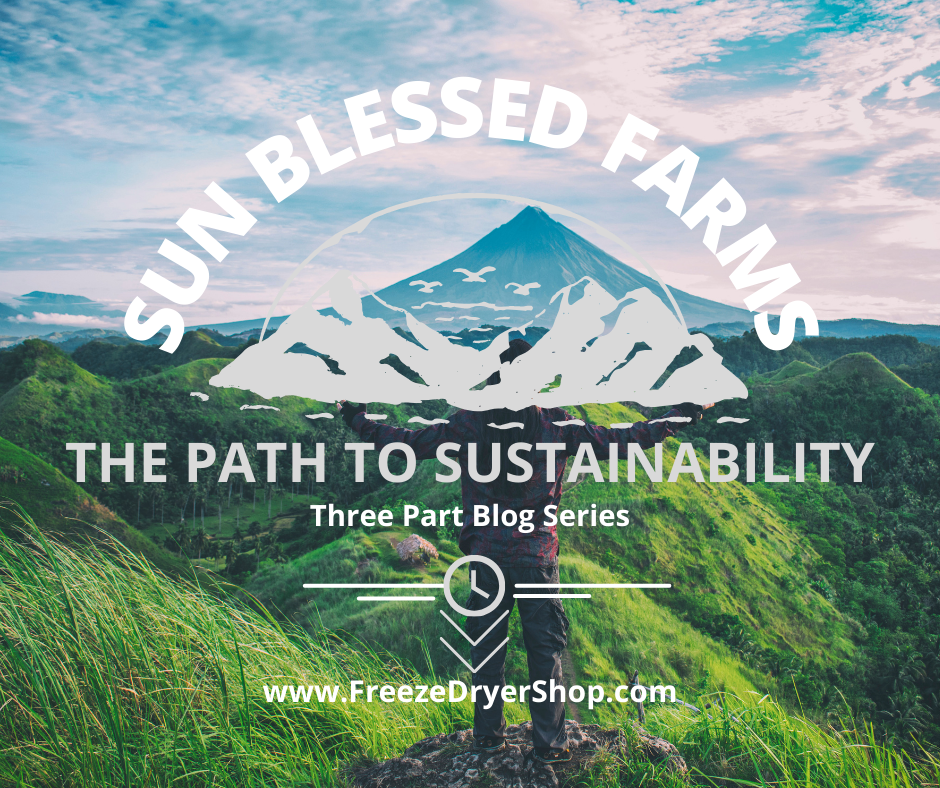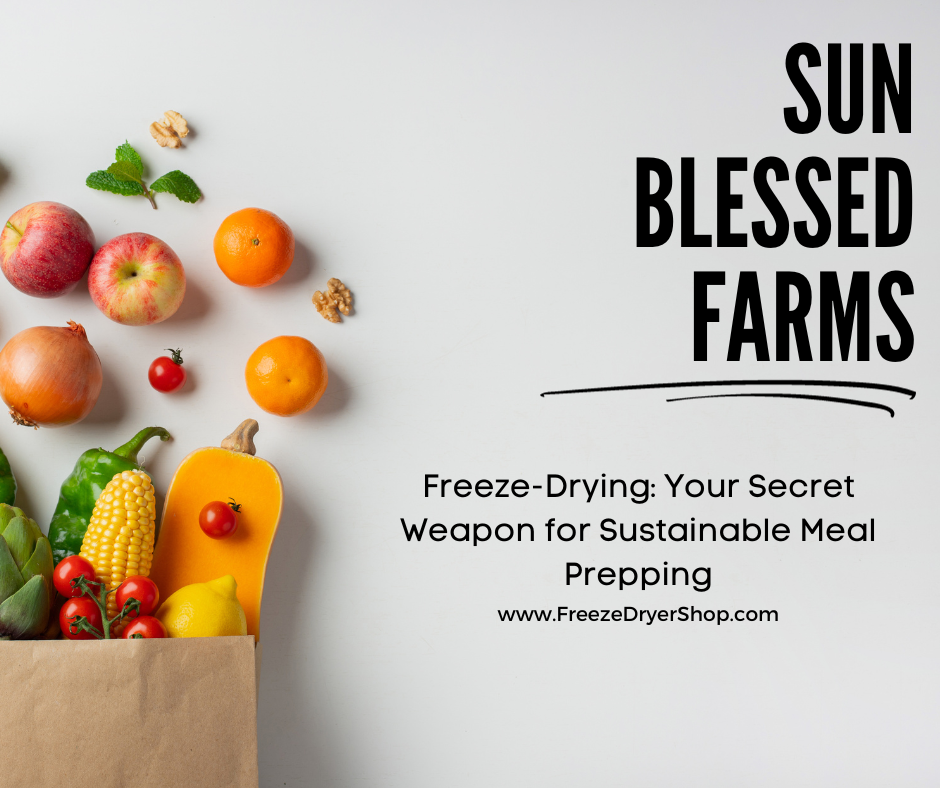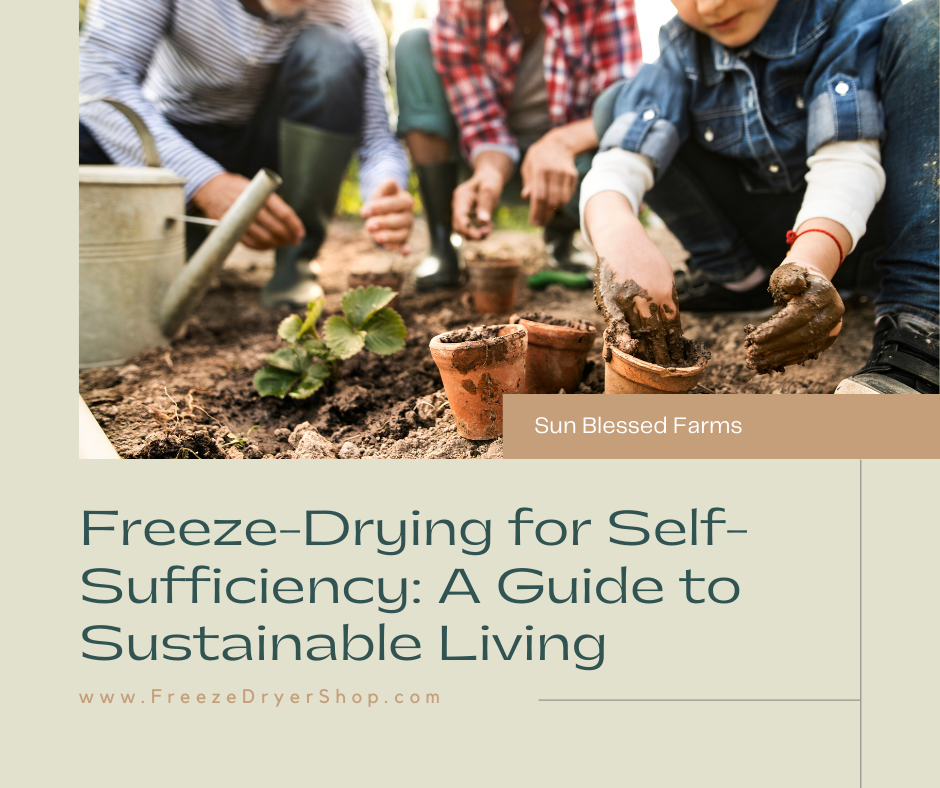Free Shipping to the lower 48 on all freeze dryers!

Please expect up to 4-6 weeks for your order to ship.
Growing Your Own Food Part 1
The Ultimate Guide to Soil Preparation for Growing Fruits and Vegetables
The Ultimate Guide to Soil Preparation for Growing Fruits and Vegetables
When it comes to cultivating a successful and bountiful garden, proper soil preparation is the foundational step that cannot be overlooked. Whether you're planning to grow an assortment of fruits or an array of vegetables, the health and productivity of your plants depend on the quality of your soil. In this comprehensive guide, we will delve deep into the art of soil preparation, helping you understand the nuances of soil types, nutrients, and how to create the perfect growing environment for your crops.
Understanding Soil Types
Before you start preparing your soil, it's essential to identify its type. Different soil types have unique characteristics, and knowing what you're working with is the first step toward successful gardening.
- Sandy Soil: Sandy soil has large particles that don't hold moisture well. While it offers excellent drainage, it may not retain nutrients effectively. This type of soil is suitable for root crops like carrots and radishes that require loose soil for easy growth.
- Clay Soil: Clay soil, on the other hand, has tiny particles and retains moisture but can become compacted easily. It's ideal for crops like tomatoes and cabbage that appreciate consistent moisture.
- Loamy Soil: Loamy soil is often considered the best for gardening. It's a balanced mix of sand, silt, and clay, offering good drainage, moisture retention, and nutrient availability. Most fruits and vegetables thrive in loamy soil.
- Silt Soil: Silt soil has medium-sized particles and falls between sandy and clay soils in terms of characteristics. It holds moisture well and is fertile. Many gardeners amend their soil with silt to improve its quality.
Soil Testing and Amendment
Once you've identified your soil type, it's time for a soil test. Soil testing helps you understand its pH level and nutrient content. You can purchase DIY soil testing kits or send samples to a local agricultural extension office. Based on the results, you can make informed decisions about amendments.
- pH Adjustment: Most fruits and vegetables prefer a slightly acidic soil with a pH level around 6.0 to 6.8. If your soil is too acidic (low pH) or alkaline (high pH), you can adjust it using amendments. Lime is commonly added to raise pH, while sulfur can lower it.
- Organic Matter: Organic matter, such as compost, well-rotted manure, or leaf mulch, is the lifeblood of your garden. It improves soil structure, provides essential nutrients, and enhances water retention. Incorporate organic matter into your soil to enrich it.
- Nutrient Balance: Different crops have varying nutrient requirements. For example, leafy greens like spinach and lettuce need more nitrogen, while root crops like potatoes benefit from potassium and phosphorus. Consult a gardening guide or extension office for recommendations on balanced fertilizers.
Crop Rotation and Companion Planting
To maintain soil health and prevent soil-borne diseases and pests, consider crop rotation. Crop rotation involves planting different crops in the same area each season. This practice helps break pest and disease cycles while balancing nutrient depletion.
Companion planting is another strategy to maximize your garden's potential. Some plants have natural affinities for each other and can provide mutual benefits. For instance:
- Planting marigolds alongside tomatoes can deter nematodes and certain insects.
- Beans enrich the soil with nitrogen, making them great companions for nitrogen-hungry corn.
- Basil, when planted near tomatoes, can enhance their flavor and repel pests.
Mulching and Weed Control
Mulching is a valuable technique for conserving soil moisture, preventing weed growth, and maintaining even soil temperatures. Organic mulches like straw, hay, or wood chips can be applied around your plants. These materials gradually break down, enriching the soil as they decompose.
Proper weed control is crucial for healthy plants. Weeds compete with your crops for nutrients and water. Regularly inspect your garden and remove weeds promptly to reduce their impact.
Conclusion
Soil preparation is the cornerstone of successful fruit and vegetable gardening. Understanding your soil type, conducting soil tests, amending the soil with organic matter, and following sound practices like crop rotation and companion planting are all essential steps to create an optimal growing environment. By investing time and effort into soil preparation, you pave the way for a thriving garden that yields abundant and delicious harvests season after season.
Remember, healthy soil leads to healthy plants, and healthy plants lead to a bountiful garden.
#Gardening #SoilPreparation #HomeGarden #GrowingVegetables #FruitGarden #GardenTips #SustainableLiving #HealthyEating #GardenPlanning #OrganicGardening #CompanionPlanting #CropRotation
Ready to work with
Sun Blessed Farms LLC?
Let's connect! We’re here to help.
Send us a message and we’ll be in touch.
Or give us a call today at (208) 944-4488
Agency Contact Form
We will get back to you as soon as possible
Please try again later
More Marketing Tips, Tricks & Tools
Sun Blessed Farms Expert Advice



 Rating
Rating
All Rights Reserved | Copywrited by Sun Blessed Farms LLC



